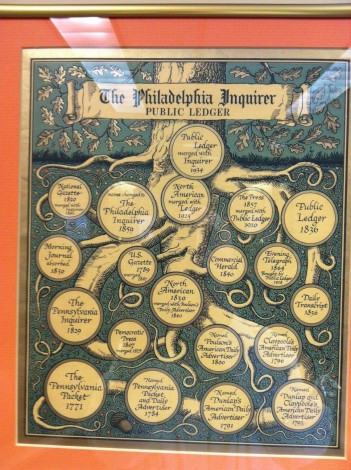The Founding Fathers would have loved and leveraged social media but been fearful of its future implications on privacy and speech issues, said a host of experts at an event on the impact of new communications patterns.
Earlier this month, I moderated a panel on the subject at the National Constitution Center featuring Jennifer Preston, a social media reporter from the New York Times, Kashmir Hill, a web law reporter from Forbes and Lori Andrews, the author of a related book which served as regular fodder for the discussion, which appeared on CSPAN 2, Book TV.
Find background and audio of the entire program on the NCC blog here. Watch the entire hour-long panel discussion on CSPAN here. (Alternate link here)
Thanks to Stefan Frank for organizing the event and including me. Below, I have a three-minute clip of the final question of the night, in which, after spending the evening speaking about the perils of social media, each panelist reminds us of the power and benefit. (I watched myself on my big ol’ home TV, which was amusing.)
Continue reading Our Founding Fathers would have loved social media but questioned its future









 In three years at Technically Philly, I’ve noted a change in the sources that bring me the ideas for the stories I do. It made me think if it’s a trend that other niche media follow.
In three years at Technically Philly, I’ve noted a change in the sources that bring me the ideas for the stories I do. It made me think if it’s a trend that other niche media follow.